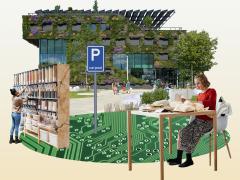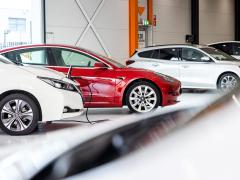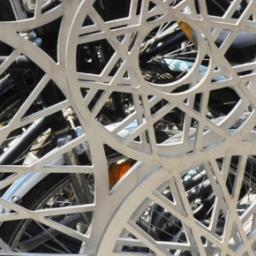Addressing international impacts of the Dutch circular economy transition
The Netherlands has the ambition to achieve a fully circular economy by 2050. This policy brief discusses the risks and opportunities of the Dutch circular economy transition for low- and middle-income countries that are connected to the Dutch economy through international supply chains. The conclusions are relevant not only for Dutch circular economy policy, but also for development cooperation in which achieving the Sustainable Development Goals (SDGs) is central.
The policy brief is written at the request of the Dutch Ministry of Foreign Affairs. It puts the circular economy transition in the context of the United Nations Sustainable Development Goals (SDGs), thereby taking a broader perspective than the Dutch Government’s focus on environmental impact and security of supply. The analysis builds on the main insights from two case studies published in 2021 that focused on electronics and textiles, trade data and environmental footprint analyses from the Integral Circular Economy Report (ICER 2021), as well as on an assessment of various stakeholder perspectives on the role of low- and middle-income countries in the circular economy of the Netherlands and European Union.
Risks for low- and middle-income countries determined by both local and Dutch policies
Whether the Dutch circular economy transition presents mostly opportunities or mainly risks for low- and middle-income countries is determined not only by the policies and practices in these countries themselves, but also by Dutch circular economy policies. Possible risks include increased pressure on food systems and nature due to increased use of biomass, and loss of employment in the extraction of raw materials and in the manufacturing industry as a result of declining demand for goods and stricter product standards. In addition, there is a risk that adverse effects of the current linear economy, such as poor working conditions and pollution during the processing of discarded items, will be repeated in the circular economy.
Safeguards and coherence in policy are required
The policy brief concludes that mitigating risks and capitalising on the opportunities for low- and middle-income countries requires safeguards and enhanced coherence between circular economy policies, trade policies and development cooperation. Specific policy actions include investing in knowledge and data on trade and impacts, integrating the circular economy in existing policies and programmes, and involving low- and middle-income countries in designing and implementing circular economy policies.
- Rapport | 18 November 2021to the textiles case study
- Rapport | 19 February 2021to the electronics case study
- Linkto the stakeholder analysis of ECDPM
- Linkto the impact study of Circle Economy
- Nieuws | 21 January 2021to the Integral Circular Economy Report 2021
- Nieuws | 19 May 2022to the report on the seminar of May the16th 2022
Authors
Specifications
- Publication title
- Addressing international impacts of the Dutch circular economy transition
- Publication subtitle
- Challenges and opportunities for low- and middle-income countries
- Publication date
- 9 May 2022
- Publication type
- Report
- Page count
- 64
- Publication language
- English
- Product number
- 4322



